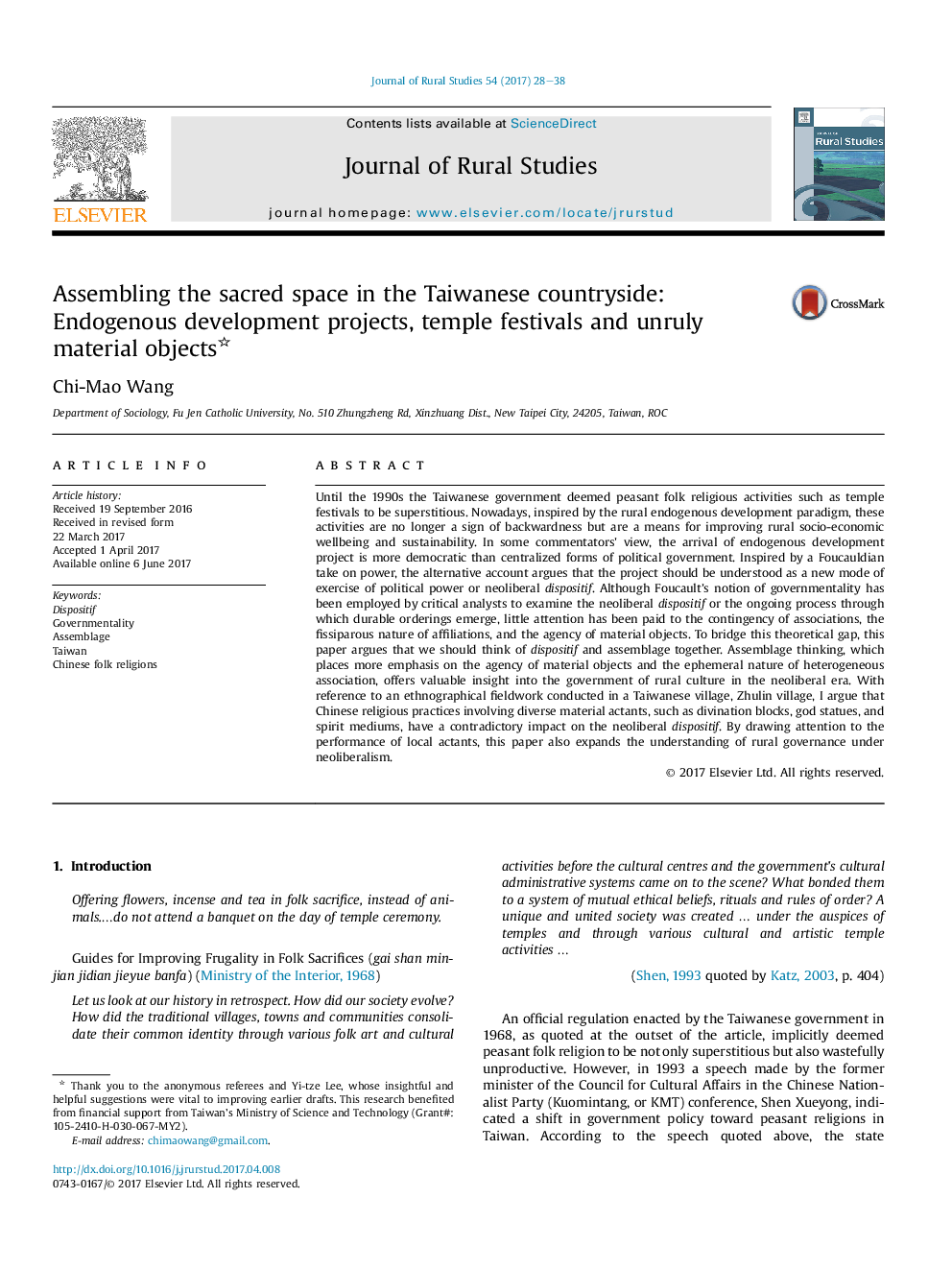| کد مقاله | کد نشریه | سال انتشار | مقاله انگلیسی | نسخه تمام متن |
|---|---|---|---|---|
| 6460012 | 1421777 | 2017 | 11 صفحه PDF | دانلود رایگان |
- Inspired by Foucauldian take on power, the arrival of rural endogenous project should be understood as new modes of exercise of political power or neoliberal dispositif.
- This paper pays attention to the contingency of associations and the agency of material objects.
- Chinese religious practices involved diverse material actants, such as divination blocks, god statues, and spirit mediums, have a contradictory impact on the neoliberal dispositif.
- This paper expands the understanding of the rural culture governance under neoliberalism.
Until the 1990s the Taiwanese government deemed peasant folk religious activities such as temple festivals to be superstitious. Nowadays, inspired by the rural endogenous development paradigm, these activities are no longer a sign of backwardness but are a means for improving rural socio-economic wellbeing and sustainability. In some commentators' view, the arrival of endogenous development project is more democratic than centralized forms of political government. Inspired by a Foucauldian take on power, the alternative account argues that the project should be understood as a new mode of exercise of political power or neoliberal dispositif. Although Foucault's notion of governmentality has been employed by critical analysts to examine the neoliberal dispositif or the ongoing process through which durable orderings emerge, little attention has been paid to the contingency of associations, the fissiparous nature of affiliations, and the agency of material objects. To bridge this theoretical gap, this paper argues that we should think of dispositif and assemblage together. Assemblage thinking, which places more emphasis on the agency of material objects and the ephemeral nature of heterogeneous association, offers valuable insight into the government of rural culture in the neoliberal era. With reference to an ethnographical fieldwork conducted in a Taiwanese village, Zhulin village, I argue that Chinese religious practices involving diverse material actants, such as divination blocks, god statues, and spirit mediums, have a contradictory impact on the neoliberal dispositif. By drawing attention to the performance of local actants, this paper also expands the understanding of rural governance under neoliberalism.
Journal: Journal of Rural Studies - Volume 54, August 2017, Pages 28-38
